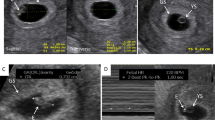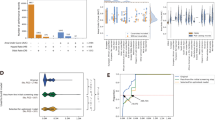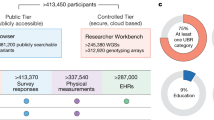Abstract
Preimplantation genetic testing using polygenic risk scores (PGT-P) has recently been introduced. However, PGT-P has been met with many ethical concerns. It is therefore important to get insights into the perspectives of stakeholders regarding PGT-P. We performed a qualitative interview study on the views of healthcare professionals toward PGT-P. We conducted in-depth semi-structured interviews with 31 healthcare professionals working in the field of preimplantation genetic testing. The interviews explored the attitudes of healthcare professionals toward the technology of PGT-P, e.g., the validity, utility, limitations and potential benefits of PGT-P. We found that most healthcare professionals were concerned about the prematurity of introducing PGT-P into clinical practice. They had various ethical considerations, such as concerns related to validity and utility of PGT-P, limited embryos and options, and difficulties for prospective parents regarding comprehension and informed decision-making. Positive aspects were also identified, e.g., regarding reproductive autonomy and potential health benefits. Overall, most healthcare professionals considered that clinical implementation of PGT-P is premature. More comprehensive, longitudinal and inclusive studies are needed first, though these might not improve PGT-P enough to responsibly implement it. Healthcare professionals were also concerned that PGT-P could cause anxiety and create difficult choices for prospective parents. These perspectives and ethical considerations are crucial to consider for future guidelines and recommendations regarding PGT-P.
This is a preview of subscription content, access via your institution
Access options
Subscribe to this journal
Receive 12 print issues and online access
$259.00 per year
only $21.58 per issue
Buy this article
- Purchase on Springer Link
- Instant access to full article PDF
Prices may be subject to local taxes which are calculated during checkout
Similar content being viewed by others
Data availability
The data underlying this paper cannot be shared publicly, in order to protect the privacy of individuals that participated in the study. The data can be shared on reasonable request to the corresponding author.
Notes
Quotes in Dutch were translated to English by M.S.
References
De Rycke M, Berckmoes V, De Vos A, Van De Voorde S, Verdyck P, Verpoest W, et al. Clinical experience of preimplantation genetic testing. Reproduction 2020;160:A45–A58.
Torkamani A, Wineinger NE, Topol EJ. The personal and clinical utility of polygenic risk scores. Nat Rev Genet. 2018;19:581–90.
Lewis CM, Vassos E. Polygenic risk scores: from research tools to clinical instruments. Genome Med. 2020;12:44.
Khera AV, Chaffin M, Aragam KG, Haas ME, Roselli C, Choi SH, et al. Genome-wide polygenic scores for common diseases identify individuals with risk equivalent to monogenic mutations. Nat Genet. 2018;50:1219–24.
Treff NR, Eccles J, Lello L, Bechor E, Hsu J, Plunkett K, et al. Utility and First Clinical Application of Screening Embryos for Polygenic Disease Risk Reduction. Front Endocrinol (Lausanne). 2019;10:845.
Lewis ACF, Green RC, Vassy JL. Polygenic risk scores in the clinic: Translating risk into action. HGG Adv. 2021;2:100047.
Treff NR, Marin D, Lello L, Hsu S, Tellier LCAM. Preimplantation genetic testing for polygenic disease risk. Reproduction 2020;160:A13–A7.
Vermeesch JR, Voet T, Devriendt K. Prenatal and pre-implantation genetic diagnosis. Nat Rev Genet. 2016;17:643–56.
Genomic Prediction. Succesful pregnancy. Healthy baby. 2022 https://www.lifeview.com/.
Orchid. Identify your healthiest embryo 2022 https://www.orchidhealth.com/embryo.
Lazaro-Munoz G, Pereira S, Carmi S, Lencz T. Screening embryos for polygenic conditions and traits: ethical considerations for an emerging technology. Genet Med. 2021;23:432–4.
Karavani E, Zuk O, Zeevi D, Barzilai N, Stefanis NC, Hatzimanolis A, et al. Screening Human Embryos for Polygenic Traits Has Limited Utility. Cell 2019;179:1424–35 e8.
Lencz T, Backenroth D, Granot-Hershkovitz E, Green A, Gettler K, Cho JH, et al. Utility of polygenic embryo screening for disease depends on the selection strategy. eLife. 2021;10:e64716.
Forzano F, Antonova O, Clarke A, de Wert G, Hentze S, Jamshidi Y, et al. The use of polygenic risk scores in pre-implantation genetic testing: an unproven, unethical practice. Eur J Hum Genet. 2021;30:493–5.
Munday S, Savulescu J. Three models for the regulation of polygenic scores in reproduction. J Med Ethics. 2021;47:e91.
Pagnaer T, Siermann M, Borry P, Tsuiko O. Polygenic risk scoring of human embryos: a qualitative study of media coverage. BMC Med Ethics. 2021;22:125.
Turley P, Meyer MN, Wang N, Cesarini D, Hammonds E, Martin AR, et al. Problems with Using Polygenic Scores to Select Embryos. N Engl J Med. 2021;385:78–86.
Polyakov A, Amor DJ, Savulescu J, Gyngell C, Georgiou EX, Ross V, et al. Polygenic risk score for embryo selection—not ready for prime time. Hum Reprod. 2022;37:2229–36.
Treff NR, Savulescu J, de Melo-Martín I, Shulman LP, Feinberg EC. Should preimplantation genetic testing for polygenic disease be offered to all – or none? Fertil Steril. 2022;117:1162–7.
Johnston J, Matthews LJ. Polygenic embryo testing: understated ethics, unclear utility. Nat Med. 2022;28:446–8.
Kamenova K, Haidar H. The First Baby Born After Polygenic Embryo Screening: Key Issues Through the Lens of Experts and Science Reporters. Voices Bioethics. 2022;8:1–9.
Siermann M, Tsuiko O, Vermeesch JR, Raivio T, Borry P. A review of normative documents on preimplantation genetic testing: Recommendations for PGT-P. Genet Med. 2022;24:1165–75.
Siermann M, Claesen Z, Pasquier L, Raivio T, Tšuiko O, Vermeesch JR, et al. A systematic review of the views of healthcare professionals on the scope of preimplantation genetic testing. J Community Genet. 2022;13:1–11.
Potter BK, Avard D, Wilson BJ. Newborn blood spot screening in four countries: stakeholder involvement. J Public Health Policy. 2008;29:121–42.
Lemke AA, Harris-Wai JN. Stakeholder engagement in policy development: challenges and opportunities for human genomics. Genet Med. 2015;17:949–57.
Palinkas LA, Horwitz SM, Green CA, Wisdom JP, Duan N, Hoagwood K. Purposeful Sampling for Qualitative Data Collection and Analysis in Mixed Method Implementation Research. Adm Policy Ment Health. 2015;42:533–44.
Braun V, Clarke V. Using thematic analysis in psychology. Qual Res Psychol. 2006;3:77–101.
Sciorio R, Dattilo M. PGT-A preimplantation genetic testing for aneuploidies and embryo selection in routine ART cycles: Time to step back? Clin Genet. 2020;98:107–15.
Mastenbroek S, De Wert G, Adashi EY. The Imperative of Responsible Innovation in Reproductive Medicine. N Engl J Med. 2021;385:2096–100.
Gleicher N, Patrizio P, Brivanlou A. Preimplantation Genetic Testing for Aneuploidy - a Castle Built on Sand. Trends Mol Med. 2021;27:731–42.
Mortimer R, Ginsburg E. Preimplantation Genetic Testing for Aneuploidy: Has the Controversy Settled? A Review. Curr Obstet Gynecol. 2022;11:48–54.
Ray F Embryo Selection From Polygenic Risk Scores Enters Market as Clinical Value Remains Unproven 2021 [updated 22 December 2021. https://www.genomeweb.com/sequencing/embryo-selection-polygenic-risk-scores-enters-market-clinical-value-remains-unproven#.YdVrVmjMJPZ.
Chapman R, Likhanov M, Selita F, Zakharov I, Smith-Woolley E, Kovas Y. New literacy challenge for the twenty-first century: genetic knowledge is poor even among well educated. J Community Genet. 2019;10:73–84.
Meister U, Finck C, Stobel-Richter Y, Schmutzer G, Brahler E. Knowledge and attitudes towards preimplantation genetic diagnosis in Germany. Hum Reprod. 2005;20:231–8.
Karatas JC, Strong KA, Barlow-Stewart K, McMahon C, Meiser B, Roberts C. Psychological impact of preimplantation genetic diagnosis: a review of the literature. Reprod Biomed Online. 2010;20:83–91.
Lavery SA, Aurell R, Turner C, Castellu C, Veiga A, Barri PN, et al. Preimplantation genetic diagnosis: patients’ experiences and attitudes. Hum Reprod. 2002;17:2464–7.
Cheng L, Meiser B, Kirk E, Kennedy D, Barlow-Stewart K, Kaur R. Decisional needs of patients considering preimplantation genetic testing: a systematic review. Reprod Biomed Online. 2022;44:839–52.
Christensen KD, Vassy JL, Jamal L, Lehmann LS, Slashinski MJ, Perry DL, et al. Are physicians prepared for whole genome sequencing? a qualitative analysis. Clin Genet. 2016;89:228–34.
Quinn GP, Knapp C, Sehovic I, Ung D, Bowman M, Gonzalez L, et al. Knowledge and Educational Needs about Pre-Implantation Genetic Diagnosis (PGD) among Oncology Nurses. J Clin Med. 2014;3:632–45.
Gietel-Habets JJG, de Die-Smulders CEM, Tjan-Heijnen VCG, Derks-Smeets IAP, van Golde R, Gomez-Garcia E, et al. Professionals’ knowledge, attitude and referral behaviour of preimplantation genetic diagnosis for hereditary breast and ovarian cancer. Reprod Biomed Online. 2018;36:137–44.
Ormond KE, Laurino MY, Barlow-Stewart K, Wessels TM, Macaulay S, Austin J, et al. Genetic counseling globally: Where are we now? Am J Med Genet C Semin Med Genet. 2018;178:98–107.
Pereira S, Carmi S, Altarescu G, Austin J, Barlevy D, Hershlag A, et al. Polygenic embryo screening: four clinical considerations warrant further attention. Hum Reprod. 2022;37:1375–8.
Mertes H, Pennings G. Bioethics in human reproduction (human reproductive genetics). In: García-Velasco JA, Seli E, editors. Human Reproductive Genetics: Emerging Technologies and Clinical Applications. Cambridge (MA): Academic Press; 2020. p. 283–93.
Zeiler K. Reproductive autonomous choice – A cherished illusion? Reproductive autonomy examined in the context of preimplantation genetic diagnosis. Med Health Care Philos. 2004;7:175–83.
Acknowledgements
We thank the healthcare professionals that took part in this study for their valuable contribution. Furthermore, we would like to thank Amicia Phillips (KU Leuven) for checking the paper for linguistic accuracy.
Funding
This project has received funding from the European Union’s Horizon 2020 research and innovation program under the Marie Skłodowska-Curie grant agreement No 813707. Pascal Borry is also funded through A PeRsOnalized Prevention roadmap for the future HEalThcare (PROPHET, grant number 101057721).
Author information
Authors and Affiliations
Contributions
Conceptualization: MS, OT, PB. Analysis: MS, OV. Investigation and methodology: MS, OV. Project administration: MS. Supervision: PB, OT. Writing original paper: MS; Critical review of paper: MS, OV, TR, JRV, OT, PB.
Corresponding author
Ethics declarations
Competing interests
The authors declare no competing interests.
Ethics approval
The study received ethical approval from the Research Ethics Committee UZ/KU Leuven (S65501). All participants signed an informed consent form to participate in this study.
Additional information
Publisher’s note Springer Nature remains neutral with regard to jurisdictional claims in published maps and institutional affiliations.
Rights and permissions
Springer Nature or its licensor (e.g. a society or other partner) holds exclusive rights to this article under a publishing agreement with the author(s) or other rightsholder(s); author self-archiving of the accepted manuscript version of this article is solely governed by the terms of such publishing agreement and applicable law.
About this article
Cite this article
Siermann, M., Valcke, O., Vermeesch, J.R. et al. Limitations, concerns and potential: attitudes of healthcare professionals toward preimplantation genetic testing using polygenic risk scores. Eur J Hum Genet 31, 1133–1138 (2023). https://doi.org/10.1038/s41431-023-01333-9
Received:
Revised:
Accepted:
Published:
Issue Date:
DOI: https://doi.org/10.1038/s41431-023-01333-9
This article is cited by
-
Genome-wide equine preimplantation genetic testing enabled by simultaneous haplotyping and copy number detection
Scientific Reports (2024)
-
Patient interest in and clinician reservations on polygenic embryo screening: a qualitative study of stakeholder perspectives
Journal of Assisted Reproduction and Genetics (2024)
-
Contributing to the on-going debate around the clinical application of preimplantation embryo selection based on polygenic risk scores (PGT-P)
European Journal of Human Genetics (2023)



